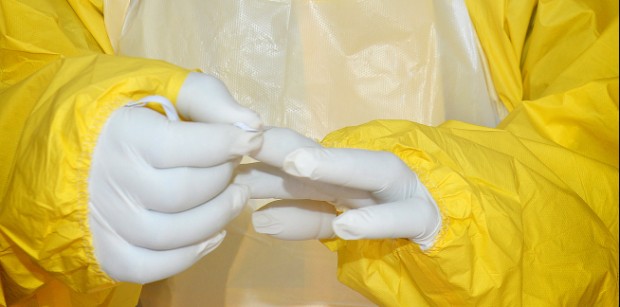An international crisis requires information to be created quickly, amended quickly and communicated instantly to a multilingual audience.
E-learning is able to reinforce classroom content with ‘flipped learning’, providing interactive and video content in advance of classroom training, leading to a greater mastery in skills by the end of the programme. Using the instructional stages of Explain, Demonstrate, Imitate and Practice (EDIP) it creates the opportunity, via online media, for students to view the Explanation and Demonstration phases at their own speed and convenience, off site, on their preferred device, before the lesson commences.
This was demonstrated when the 2015 Ebola outbreak presented a logistical challenge for those responsible for delivering training to teams being sent to Sierra Leone. Traditional training techniques, or ‘chalk and talk’ wouldn’t work due to geography, language and also the speed with which new information about Ebola was coming in from the field.
CDS were approached by the British Army Training Development Team (TDT) to see if we could build a  solution to support their programme to tackle Ebola in Sierra Leone.
solution to support their programme to tackle Ebola in Sierra Leone.
We were tasked to create an e-learning portal in two weeks, in conjunction with the TDT experts, which could be used to support Operation Gritrock, the UK’s response to the Ebola crisis in Africa. The solution had to deliver multilingual content to geographically diverse teams and supplement classroom based training both before and after classroom tuition as well as educate those in the field. We joined military medical experts and learning development specialists to develop a bespoke, comprehensive, structured, modular learning programme. The solution included video tutorials developed in a replica field hospital in the UK and communicated to the Army and scientists on the ground; interactive tutorials; a mobile enabled microsite for storing and displaying training content and a learning management system which underpinned the microsite, logging student access.
The packaged elements could be made accessible world-wide 24/7 for healthcare professionals, Non-Governmental Organisation personnel and Sierra Leone nationals to ensure standardisation of processes and practice. The material was provided to teams before and during deployment to maximise the effectiveness of their training. Successful application of learning theory meant all involved whether illiterate or highly qualified, surgeon or local assistant could operate safely in an unprecedented hazardous biological environment. Upon arrival in the classroom, armed with their prior knowledge, the student can move directly to the Imitating and Practising phases, maximising classroom time to gain mastery of the skill as opposed to the traditional approach of sitting passively whilst being read into the subject before practice could commence.
Since this project we have worked with Army Training to develop other technology based tools to supplement classroom based learning, this time post-classroom (Imitate and Practice). We have developed digital training products for sniper training and mortar training which allow students to hone their skills outside the classroom, using scientifically accurate data which reinforces classroom learning.
The Army’s eLearning solution has been recognised for innovation and has now been shortlisted for the eLearning Awards.
Read more about Learning from the Ebola Crisis in the latest edition of Defence Science - MOD's magazine for Defence science, Technology and Engineering.
